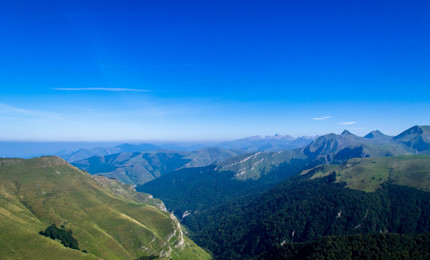Urgence gaz 0 800 028 800

Research & Innovation objective: multi-energy systems
At Teréga, we are convinced that the future of energy must be considered as of now. To promote the development of renewable energies and optimise performance of the grids, the various energy carriers must be seen as a unified, smart system. This is known as “multi-energy”. One of the major objectives of Teréga’s R&I teams is thus to think about ways of developing the expertise and digital tools associated with multi-energy systems.
Our R&I ambitions in relation to multi-energy
The ambition of multi-energy systems is to combine energy efficiency with their environmental performance. Creating synergies between the different grids (gas, electricity, heat) helps reduce energy wastage by storing losses for use at a later time, or transforming them into an energy source for which there is greater demand or which is more efficient in use. This interconnection requires being able to manage the production and consumption of several types of energy and controlling all the flows in real time. The objective of Teréga’s R&I teams is to develop a methodology and innovative digital tools to optimise multi-energy systems.
This involves:
creating a decision-making methodology to develop multi-energy systems with a high share of renewable energies integrating new technological building blocks,
developing a real-time tool to manage physical and trade flows.
The IMPULSE 2025 project: a multi-energy Smart Grid
Initiated in 2019, this project is aimed at deploying a smart multi-energy system which relies on industrial and digital technology. The objective of IMPULSE 2025 is to optimise both the overall performance of current energy systems and their environmental impacts. Our multi-energy system is based on:
grid interconnection: optimisation and sharing of multiple energy sources (electricity, gas, heat),
energy efficiency: recovery, storage and use of waste energy,
digital technology: optimal management of the different energy sources between the different stakeholders.
This project is supported by the Nouvelle-Aquitaine Region.








